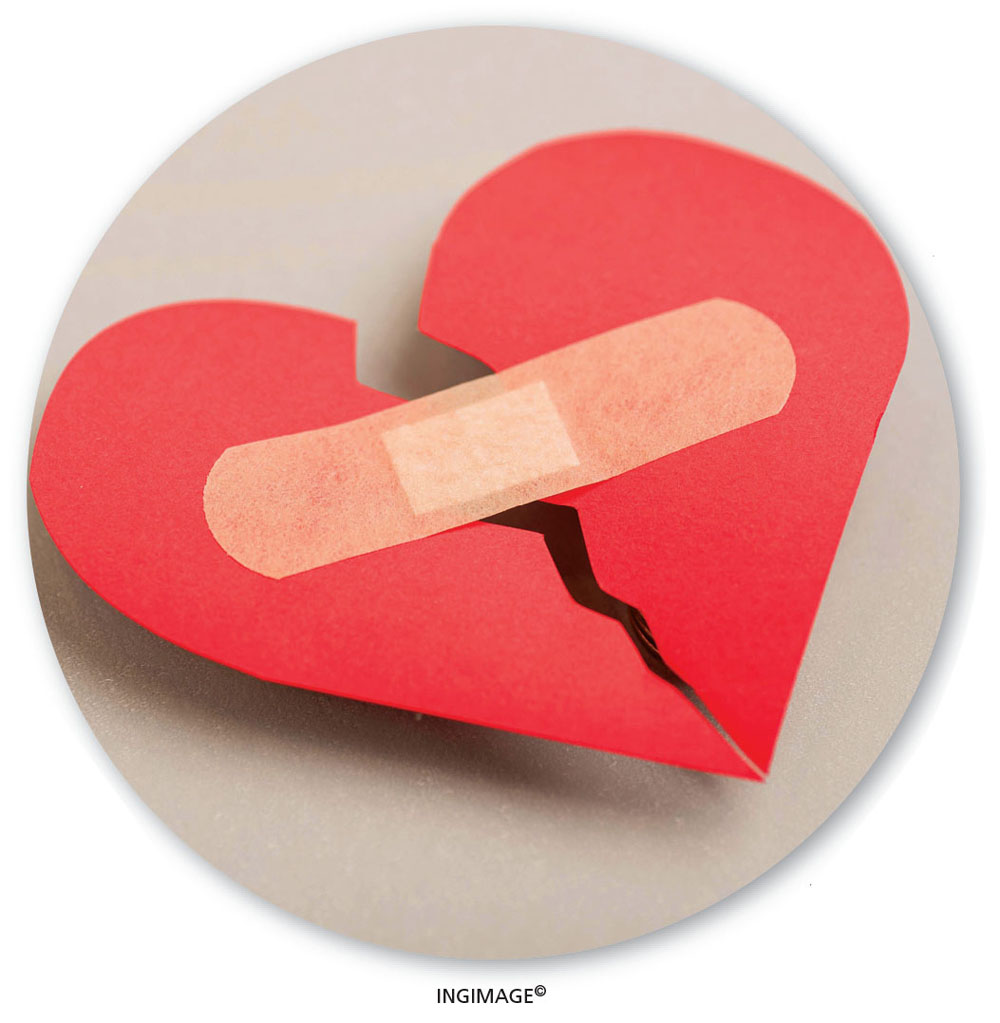PERSONAL WELLBEING
EMOTIONAL
FIRST AID
Seek help to promote healing and wellbeing
BY Archana Law
Seek advice when you catch a cold, and you’ll be told to rest and have hot soup. Cut your knee, and you’ll be instructed to clean the wound, apply antibacterial ointment and bandage it. Taking immediate measures will prevent the problem from getting worse.
So consider how we go about easing the sharp pain of rejection, devastating loneliness, the bitter disappointment of failure, recovery from low self-esteem or emotional trauma.
We talk with close friends or caring family members in an effort to deal with these psychological injuries, seek professional help or take no action because we lack the tools with which to manage such experiences.
Or we hold back because we feel we can’t run to someone else to ease our pain and distress every time we’re rejected romantically or the boss yells at us.
Emotional wellbeing is an essential aspect of overall health; and yet, it often receives less attention compared to physical health. But it’s equally important to address these wounds promptly. Emotional first aid is a concept that involves recognising and addressing psychological injuries, to promote healing and resilience.
The goal of emotional first aid is to mitigate the impact of distress that a person is feeling, and facilitate recovery in a safe and nonjudgmental environment.
Emotional trauma can stem from various sources such as loss, abuse, accidents or significant life events that leave deep emotional scars, affecting a person’s thoughts, emotions and behaviour. Invisible wounds may manifest as anxiety, depression, anger or feelings of isolation that impact the quality of life.
Recovery strategies are essential tools for individuals who are seeking to heal and regain their emotional wellbeing after experiencing challenging or traumatic events.
Here are some strategies that will help nurture mental and emotional resilience, promote self-care and foster healthy coping mechanisms.
AWARENESS It is critical to recognise the signs of emotional distress and common reactions – such as sadness, anxiety, anger or withdrawal as well as changes in behaviour or mood.
Applying emotional first aid can prevent many of these injuries from affecting our mental health and emotional wellbeing in the future. Indeed, many of the diagnosable psychological conditions for which we seek professional treatment could have been prevented if we’d applied emotional first aid when we sustained the wounds in the first place.
PERCEPTION Emotional intelligence (EQ) is a valuable skill that plays a vital role in our ability to navigate and recover from emotional challenges.
It refers to the ability to recognise, understand and manage our own emotions, as well as perceive and empathise with those of others. EQ involves self-awareness, self-regulation, social awareness and relationship management.
ACKNOWLEDGMENT Allowing yourself to fully experience and accept the pain without judgement or self-blame reduces inner resistance, and creates a foundation for the healing process. Treat yourself with kindness and compassion.
Understand that healing takes time and it’s okay to prioritise self-care. Engage in activities that bring joy and provide a sense of comfort. Nurture yourself physically, emotionally and mentally.
NONJUDGMENTAL Look for or create a calm and private environment where you feel comfortable processing your emotions without interference from your ‘inner critic.’
Similarly, being there for others without judgement or criticism involves active listening, empathy, undivided attention and obvious support, instead of offering advice or trying to fix the problem.
REACHING OUT Healing invisible wounds often requires support from others such as trusted friends, family members or professional therapists, who can provide a listening ear, empathy and guidance.
You can be guided through the healing process, gain insights, develop coping mechanisms and navigate the complexities of emotional trauma, and rest assured that it is normal to experience a range of emotions in challenging times.
TAKING CARE Healthy coping strategies such as exercise, proper nutrition, relaxation techniques, journaling, meditation, and engaging in activities that bring joy and comfort help prioritise self-care and promote emotional wellbeing.
Set aside time to reflect on your thoughts, feelings and experiences, and follow up regularly with your support structure.
BE FORGIVING Forgiveness releases emotional pain and unresolved emotions. This doesn’t mean forgetting or condoning what caused the pain but letting go of the emotional baggage that holds you back.
Forgiveness is a process that can lead to personal liberation, growth and the discovery of your inner strengths. The smallest step in the right direction can be the biggest step of your life.




